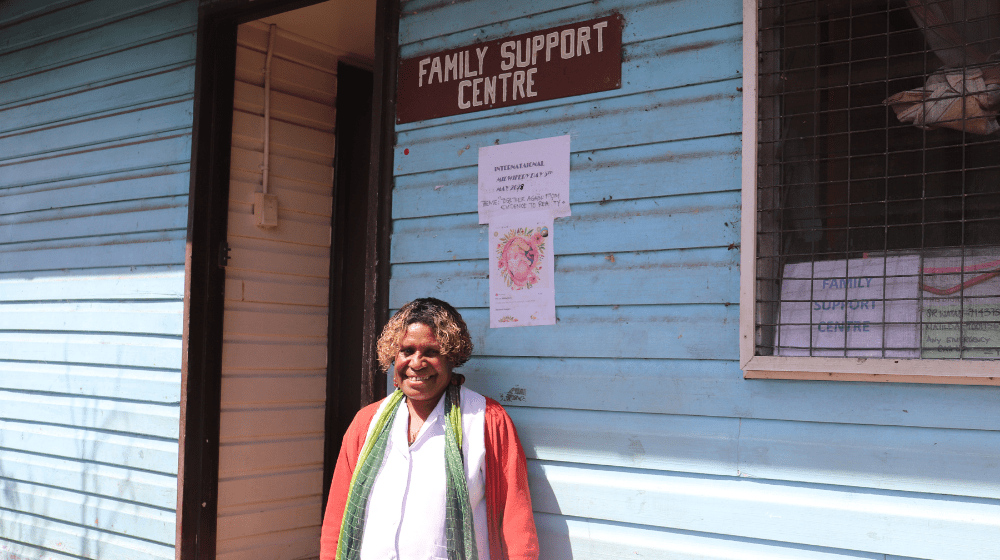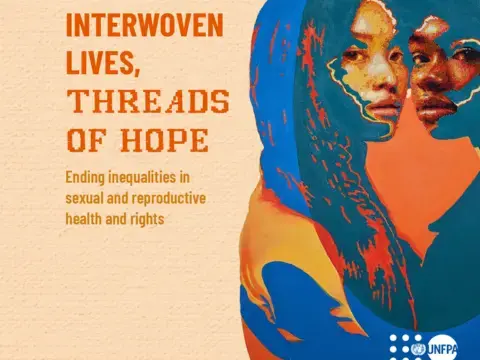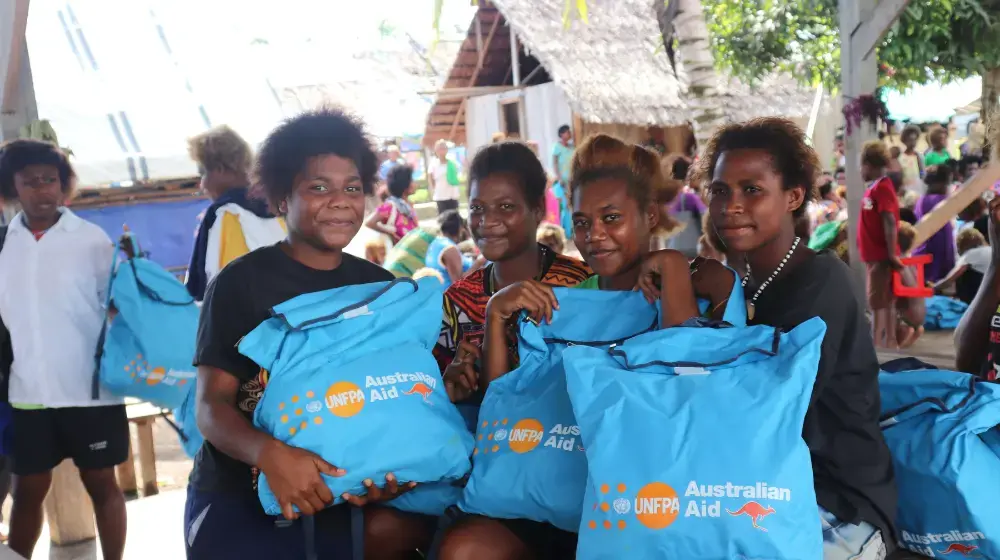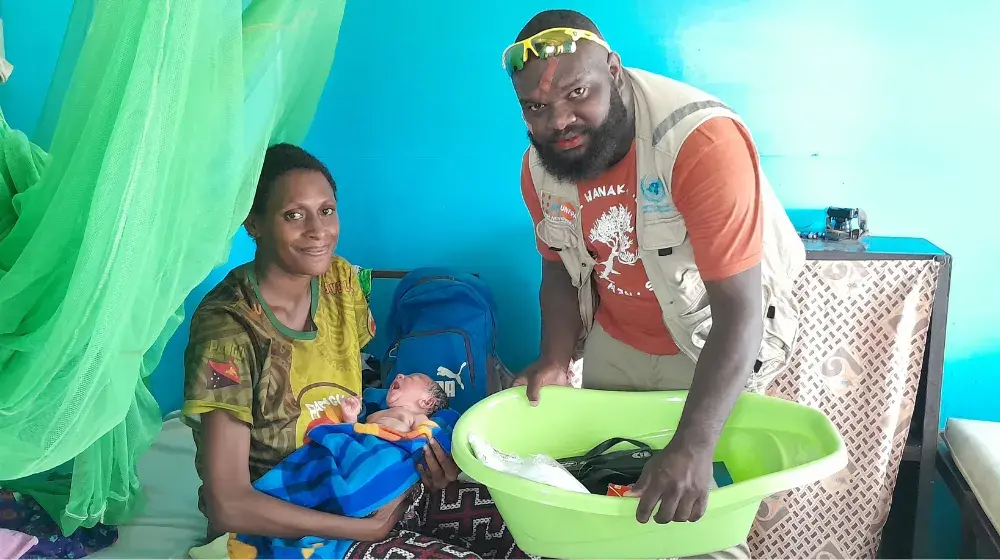Almost one year since Papia New Guinea's National General Elections 2022, communities in Enga Province are still affected by election-related violence. Though some tribal conflict and opportunistic crime continue, health services are reopening to survivors. The medical staff of the province's Family Support Centres are the often the first responders for survivors and UNFPA has been working in partnerships with the Provincial Health Authority to ensure these facilities have the resources they need to provide the best quality of care.
The Family Support Center at Enga Provincial Hospital sees 20 cases of sexual assault every month. The team believes there are many more cases in the province that do not reach them, either because they cannot access the FSC or because there is limited awareness of the services available.
Sr. Betty Wetao, a nurse for over 25 years, who has been the Officer-in-Charge of the FSC since 2019, shared these troubling statistics when she received UNFPA’s Reproductive Health Kit 3; A post-rape treatment kit.
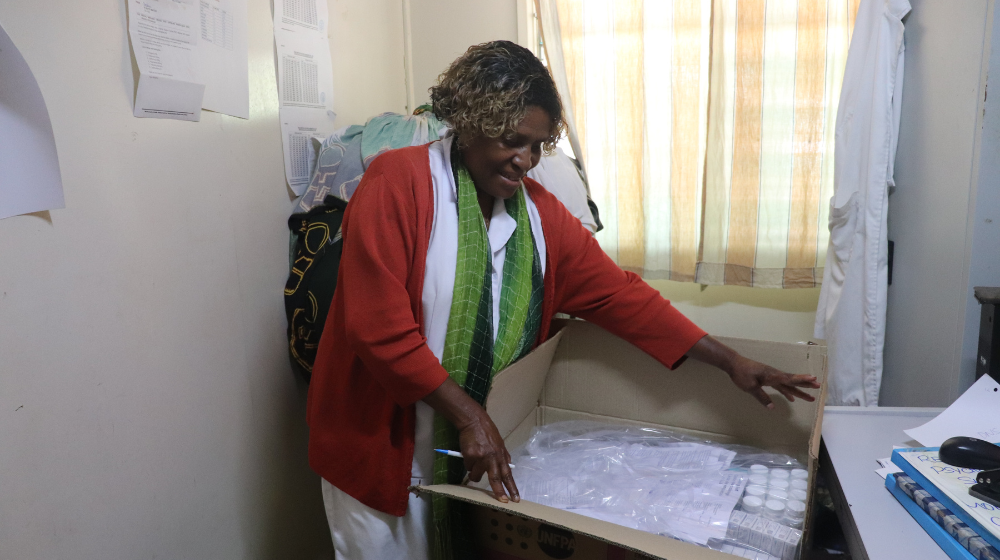
It was not long after receiving the kit that Sr Betty, sadly, had an opportunity to use it.
“So far in the month of June, I was able to administer the post-rape kit to five female survivors of sexual violence, including antiretroviral treatment to prevent HIV and a pregnancy test,” shared Sr Betty. “Post-exposure prophylaxis, pregnancy kits, and the emergency contraceptive pills in the RH kit are used for preventing HIV and unintended pregnancy and are very important when providing assistance to these survivors.”
“I have also administered post-exposure prophylaxis (PEP) on one male survivor as well.”
Kit 3 is one of 12 types of reproductive health kits that UNFPA, and other humanitarian organisations, can deliver to communities affected by conflict or an environmental event when access to health services and supply chains may be disrupted. Some of these kits are for community health posts and others include supplies for advanced medical care facilities, such as emergency obstetrics and surgery.
In Enga Province, UNFPA, with support from the United States Agency for International Development, has distributed a total of 33 kits to health providers across the province to provide health services for communities who continue to be affected by election-related violence which commenced prior to the General National Elections 2022.
“Through the provision of RH Kit 3, our FSC has managed to assist six survivors this month, and we look forward to assisting more survivors of sexual violence,” said Sr Betty. “We really do appreciate the UNFPA team for the support they have provided.”
Sr Betty also shared her gratitude for the instruction manual that came along with the antiretroviral therapy (ART) component of the kit, sharing that the team at the FSC usually do not have ART in stock, so they are not familiar with how to administer this medication. Having an instruction pamphlet with the medication assisted her team immensely.
Sr Betty also expressed her concerns about the issues of accessibility and proper awareness in Enga as the main reasons why survivors of violence do not come to receive the support available at the FSC.
“We know there are women and men out there who are survivors of sexual assault and violence but cannot receive help because they are too remote or because they do not know that the FSC is available to help them.”
UNFPA’s humanitarian response in Enga Province includes training for frontline providers, such as church leaders, to promote the referral pathway to connect survivors of violence to health and justice services. Through improved awareness of the services available, these frontline providers will be able to help survivors in their communities access quality health and justice services.

